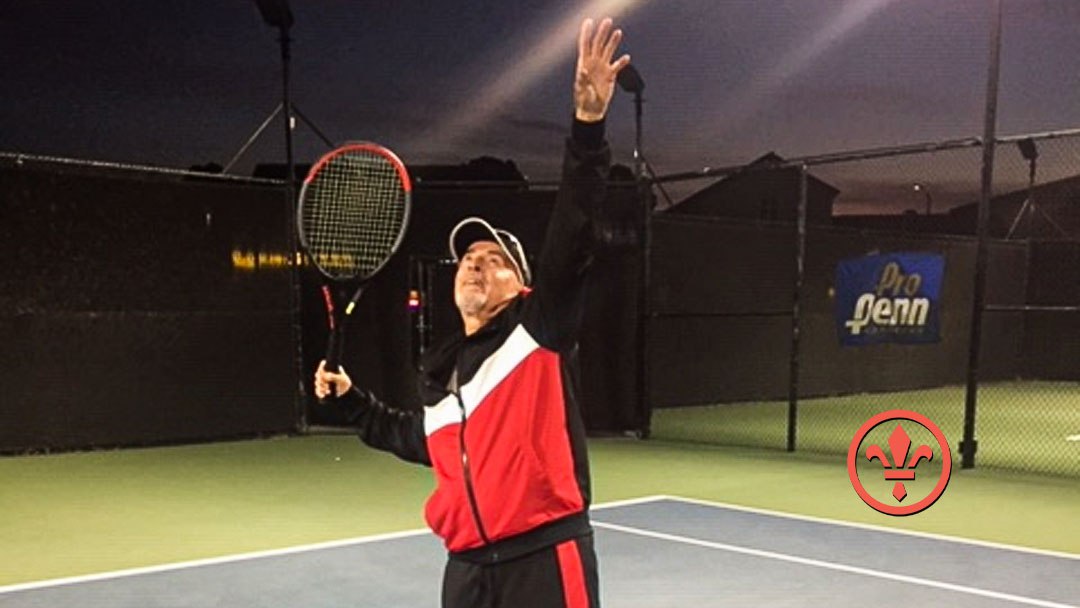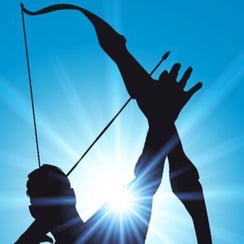
By Gabe Harmat - Tennis Coach
This is the most powerful and also the most difficult shot to learn in tennis.
Just the name itself tells you that this is an aggressive shot that is being hit above your head down into your opponent’s court with maximum power. The intent when hitting an overhead is ending the point by an outright winner.
The overhead has similar components of the serve and yet it is a lot more difficult to master. Unlike the stationary stance on the serve to execute the “smash” it requires a simultaneous combination of footwork and racket preparation.
The lob will dictate the suitable footwork and whether your movement is forward, backwards or lateral two things are essential for optimum execution, racket preparation and contact with the ball at the highest possible point of contact.
Unlike the “pendulum” wind up on the serve the overhead requires a swift racket preparation to avoid making late contact with the ball.
The tennis jargon calls it “the trophy” stance, which means the racket cocked back behind the head while the non dominant arm is pointed up toward the ball.
But in case you have never seen a tennis trophy here is another image for you, I call it the “archer” stance. Pretend you are holding a bow and arrow. Now, point the arrow up and pull the string to load up the arrow.

Once the racket is in that “trophy” position proceed with your normal service motion letting the racket twirl behind the back and move up toward the ball. After you’ve made the contact with the ball accelerate through it and follow through with the racket around the opposite hip.
Now that you have the knowledge of the racket preparation the next thing to learn is the movement to the ball. Ideally the best way to hit the overhead is by setting up early and having good balance. Hitting an overhead while your feet are wobbling is equivalent of having a heavy cannon shooting of a rocking boat.
As I’ve mentioned above your footwork depends on the incoming lob. Whether it is short, moving to your right, left or deep into the court the goal is the same which is getting under the ball on time. Using the proper footwork will help you to do so.
The most efficient footwork on all overheads is using running steps which are preferred over shuffle steps (side steps) first because they allow you to set up faster second because while using side steps or “hoping steps” the eye level goes up and down making it harder to track the ball.
Years back I have attended a U.S.P.T.A. seminar and listened to a presentation by an eye doctor who was also an accomplished tennis pro and a former college football player.. He brought up the similarity of the movement to the overhead and the movement of a quarterback in football.
He said: The tennis player’s goal is to set up for his overhead in the fastest possible way and the quarterback is trying to get away as quickly as he can from a couple giant linebackers so he doesn’t get sacked and he can pass the ball.
He also pointed out that by using shuffle steps the quarterback’s eyes would be going up and down compromising a clear vision of the field.
Emulate a quarterback's footwork on your overhead and you’ll be ready for any incoming lob – crush time.
I hope these tips were useful, to hear more detail see me on the court!
Jen Azevedo is a tennis professional, pickleball professional, personal trainer, group exercise instructor, and the general manager of the Paseo Club. She loves the community at the Paseo Club and that it is also a safe and fun place for her daughter. Jen’s favorite activities are joining her tribe for trail races or her partners for tennis matches. Occasionally Jen slows down to relax with a book — she reads over 100 a year!
Topics:

